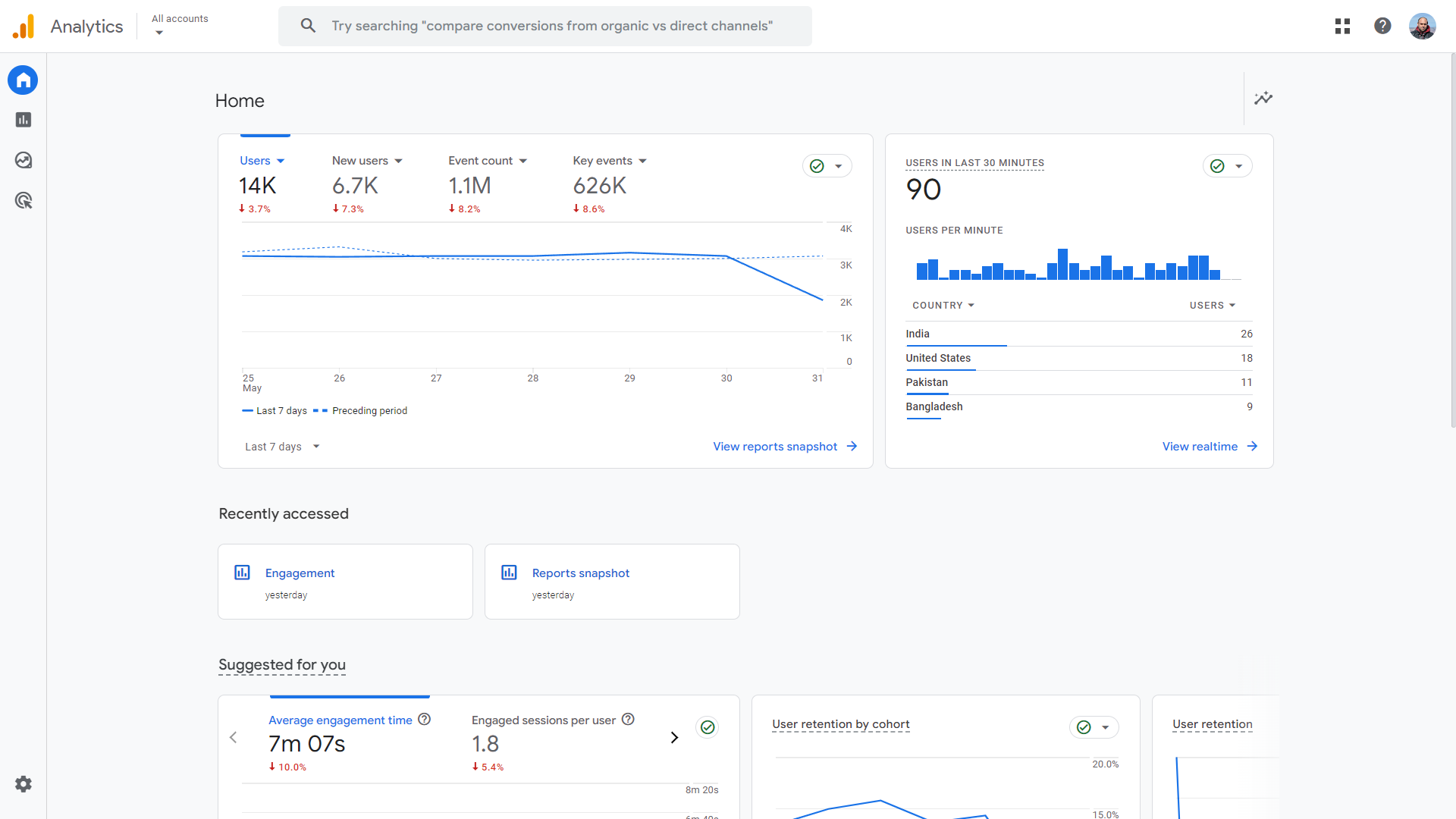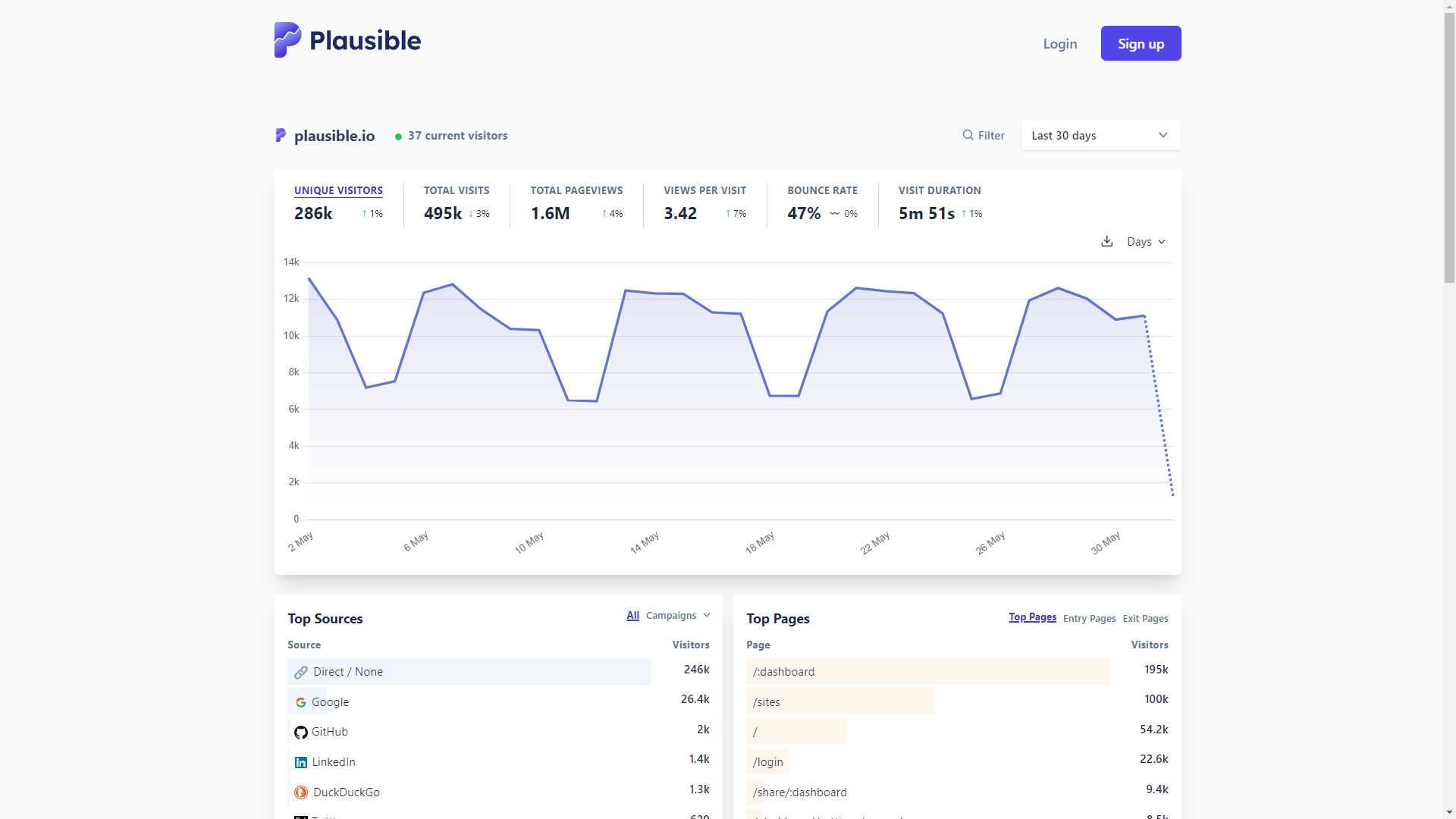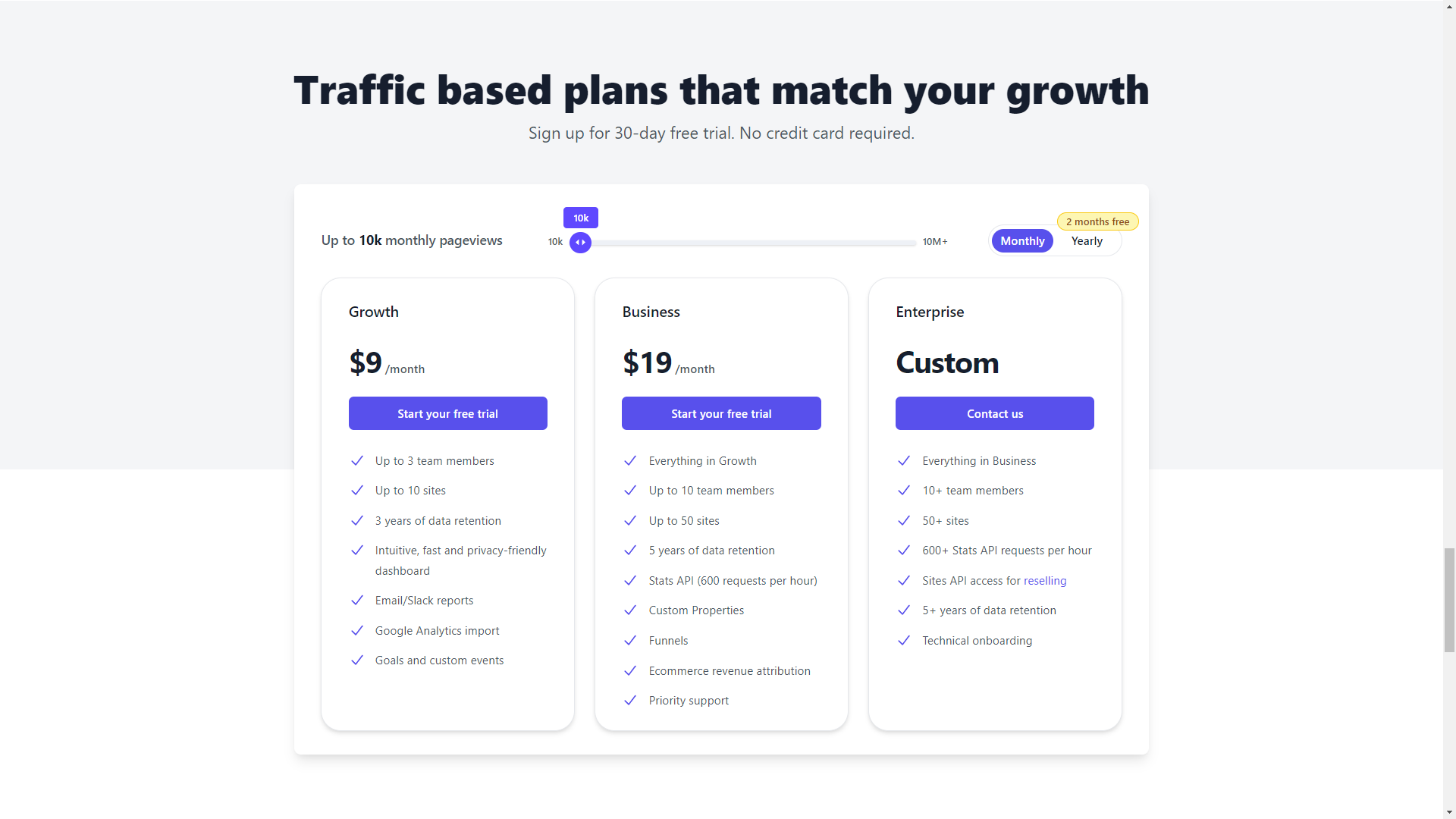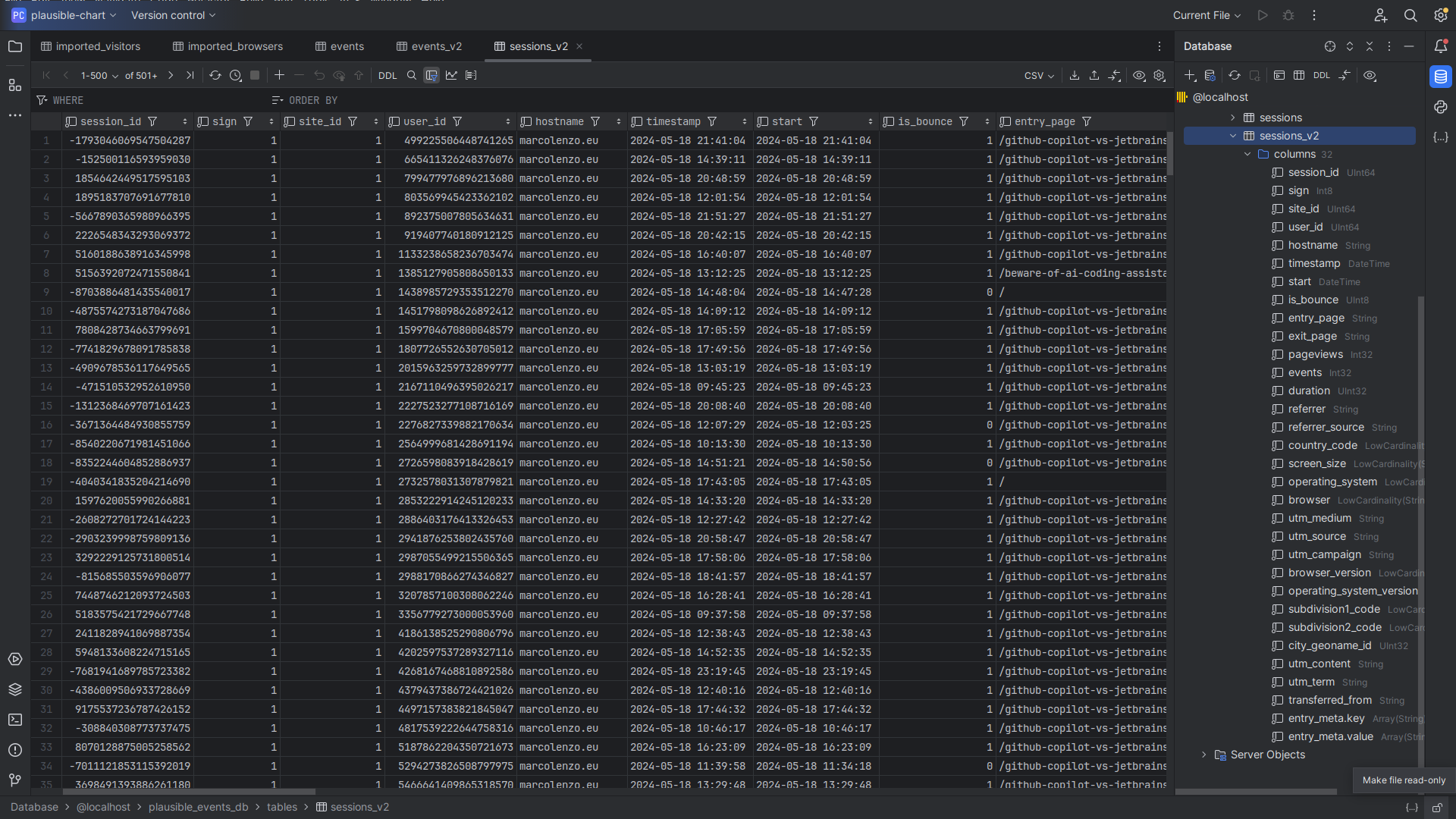Time to ditch Google Analytics
This year, while giving a facelift to this website, I ditched Google Analytics for Plausible. It was the result of an important decision I made in the process: I wanted to give free content to my audience without cluttering the articles with ads or other intrusive software that could have negative effects on their privacy.
This was the moment I questioned for the first time my use of Google Analytics.
The problem with Google Analytics
When I launched my website back in 2016, I immediately integrated it with Google Analytics because it was free and included advanced features I had seen in action at work.

Coincidentally, the European Parliament drafted the famous (or infamous) General Data Protection Regulation (GDPR) in the very same year which restricts personal data collection and management. As a European citizen, I felt the need to comply immediately, but I was overwhelmed by the complexity of such regulation.
To be honest, I was actually very angry at "the regulator"! 😡
I felt it was very unfair to put all those burdens on small bloggers who are just sharing their knowledge for free on the web. If someone with extensive experience in software development had a hard time understanding how to comply with GDPR, how could the average blog owner deal with it?
It turns out I was missing the obvious. Google Analytics was not free! My audience was paying the price by sharing some of their personal data. The responsibility was totally mine since I had made the decision to use Google Analytics.
Consent Mode and Google Analytics 4
Change is an incredible business opportunity. Companies offering GDPR compliance solutions immediately appeared in the market in conjunction with those annoying cookie consent banners.
As expected, even Google had to work hard to improve its stance on privacy. They launched Google Analytics 4 (GA4), a new “consent mode”, and a program to certify solutions that manage consent properly: the Consent Management Platforms (CMP).
The high-level idea is very simple. Before any data is extracted from the session, the visitor is given the opportunity to decide which type of data he agrees to share with the service provider. The consent management platform records his preference and configures accordingly the context for the analytics solution which will comply with the visitor’s preferences.
The problem is that in practice this is way more complicated than it needs to be. As a website owner, there are loads of settings you need to manage across Google and the CMP. At the end of the day, it is extremely difficult to understand whether you are complying or not with GDPR.
Add to that the fact that there are more regulations we need to comply with such as the California Consumer Privacy Act (CCPA) and the Brazilian Lei Geral de Proteção de Dados (LGPD); everyone with its own nuances!
The Eureka Moment
It took me a long time but finally I realized that, once again, I was missing the obvious. 😅
All I wanted was simple web analytics! I just want to know how many people read a particular article; whether they follow it up with another article from my website; and how much time they spend reading them.
That’s all! I’m not interested in anything else. Most importantly, I’m not interested in extrapolating any Personally Identifiable Information (PII). Why would I?
Finally, after 8 years using Google Analytics, I looked for alternatives and discovered Plausible.
Plausible: Simple web analytics
Plausible is an open-source Google Analytics alternative that does exactly what I need. It offers lightweight analytics without compromising on privacy.
The analytics dashboard is simple and intuitive. It is not cluttered with menus or settings. It just offers the data that matters to a blogger like me. I can see pageviews, visit duration, most visited pages, source of traffic, locations, and devices.

The most appealing characteristic of Plausible is that it is privacy focused. It does not leverage cookies and it does not collect PII. All statistics are collected anonymously, and all data is aggregated. Plausible has no reason to profile individual users because it is not an advertising company, nor does it sell data to third parties.
If you visit my website’s homepage, you'll see that the only cookie set in your browser is the 'Cookie Yes' consent. No other cookies are used. The consent popup is still in place because some cookies are necessary to embed content from YouTube and to implement the login functionality for newsletter members (if you are not a subscriber, you can subscribe here 😁).
Since Plausible is open source, we also can inspect its code. The tracker script is just 170 lines of code, including the templating markup, which translates to roughly 1KB when minimized. This means that its impact on page loading time is negligible. This is possible because Plausible collects only essential statistics. In fact, if we compare its script with the competition, we can see it is several times smaller!
What do you think? Do you want to try it out?
Cloud vs Community Edition
There are two flavors of Plausible: Cloud and Community Edition.
The most comfortable option is using Plausible Analytics Cloud which is offered as a service by the creators of Plausible. All you need to do is create an account, place the tracker script in the header of your website, and you are good to go. You have a one-month free trial to test the service without any commitment.

This is the option I would recommend! Not only because it’s the most convenient and it includes some premium features, but also because it’s a direct way of supporting the project and creators behind. They declare themselves to be completely independent, self-funded and bootstrapped. In other words, there is no big corporation behind them with a different agenda or big plans.
I want to highlight this is my personal opinion and I’m not sponsored or affiliated to Plausible in any way.
The other option is to self-host the Community Edition. This is what I’m testing right now on my website for two reasons. First, I was curious to see how the data is collected in their “ClickHouse” database. As you can see no PII is collected!

The other reason is that I’ve already invested a lot in facelifting my website, licenses and gear to produce YouTube videos, so I ran out of funds! That said, if you enjoy my content and want to help me out to produce more, visit the support me page on my website for more information! There are multiple options. Some are free and take a few seconds like sharing this article and my videos with your friends on social media or messaging platforms.
Conclusion
That’s all for today. If you are a blogger like me and never thought about a Google Analytics alternative, Plausible Analytics is something you must try if you want lightweight analytics that don’t undermine the privacy of your visitors!
Alla prossima! 👋
Support me
If you enjoyed the content and you want to help me create more of this, visit the sponsor me page!
